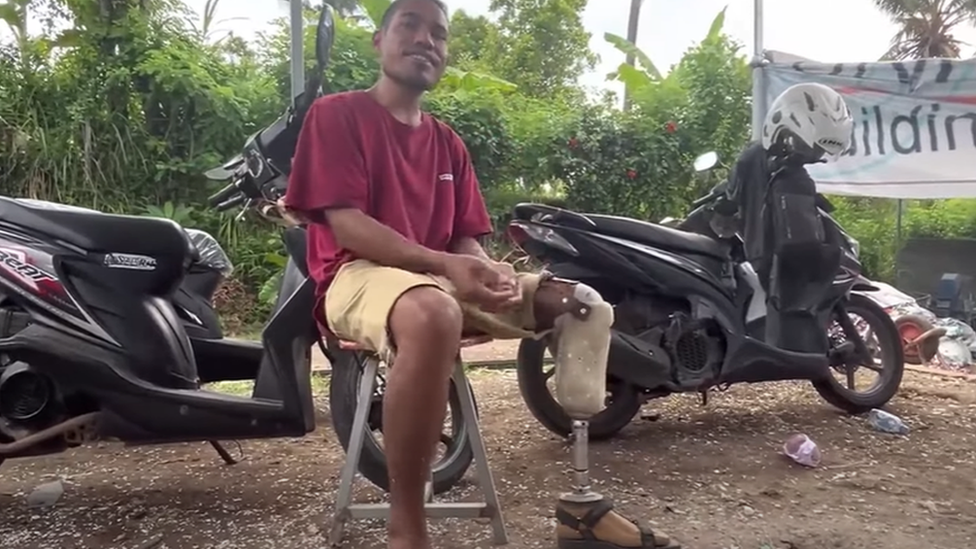Climate crisis: Coca-Cola trial to make bottle tops from CO2 emissions
- Published
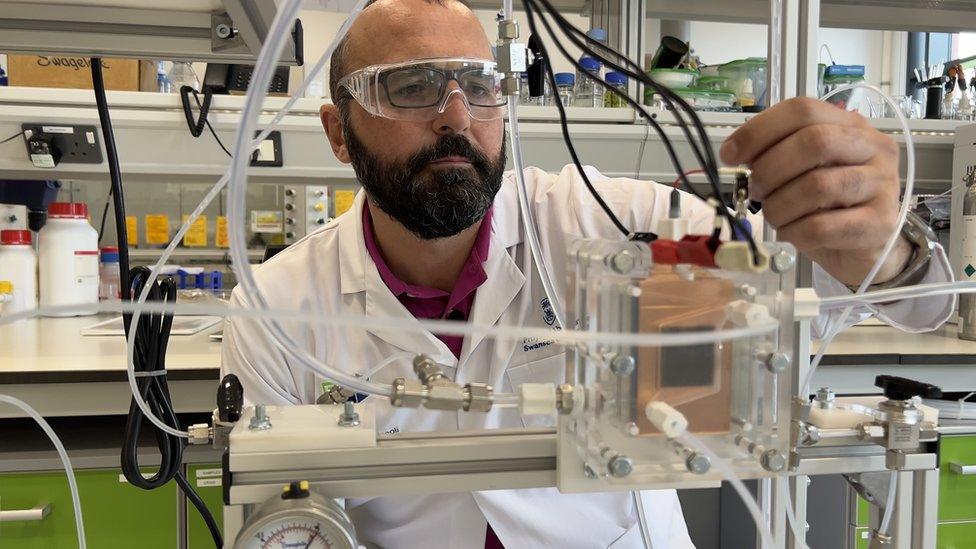
Electricity is passed through CO2 and water to make ethylene, a key ingredient in the type of plastic used to make bottle tops
Coca-Cola has unveiled plans to make its bottle tops from carbon dioxide taken out of the atmosphere.
The firm - one of the world's biggest users of plastic - is funding a three-year trial at Swansea University as part of the company's target of net zero by 2040.
Much of its current plastic packaging is made cheaply, from fossil fuels.
But it aims to "capture" CO2 from the air, or from factory emissions, to produce a key ingredient for plastics.
"The plastic we make today releases a lot of carbon dioxide into the environment," said the project's principle investigator, Professor Enrico Andreoli.
"Our starting material is carbon dioxide," he said, "so we entirely de-fossilise the process and make plastic free from fossil fuels and fossil carbon."
Plastic free from fossil fuels
Prof Andreoli, an industrial chemist, said the "magic happens" in a small black electrode where an electric charge passes through a mixture of CO2 and water, producing ethylene, a key ingredient in the flexible type of plastic used in bottle tops.
"We want to prove the technology in the laboratory works," he said, explaining how "success" would suggest ways to scale up the process.
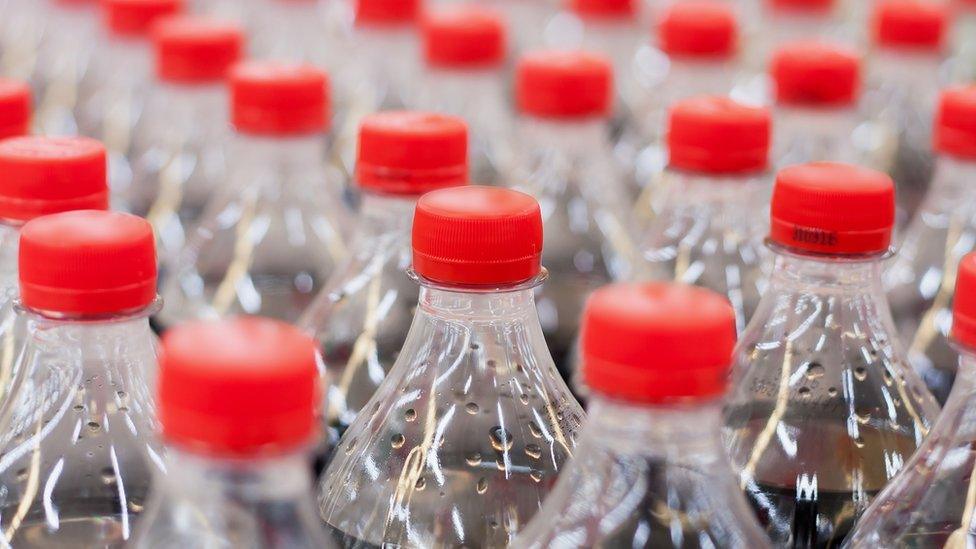
Coca-Cola says it will have to make "radical bets" on new technologies to try to reach its net zero by 2040 goal
Coca-Cola's goal is to use "captured" CO2 as a resource, taking it either from the air near its factories or directly from its own smoke stacks.
Ethylene is currently made as cheap by-product of refining petrochemicals, with fossil fuels heated to more than 800C (1472F), "cracking" off the molecules needed to make plastic.
Reducing carbon footprint
The process produced more than 260 million tonnes of CO2 emissions in 2020, or nearly 1% of the world's total CO2 emissions, according to the climate tracking group the Global Carbon Project, external.
Craig Twyford, director of Coca-Cola's venturing division for Europe and the Pacific, said the company's promise for a 30% reduction in its carbon footprint by 2030 will mostly come from using more recycled plastics.
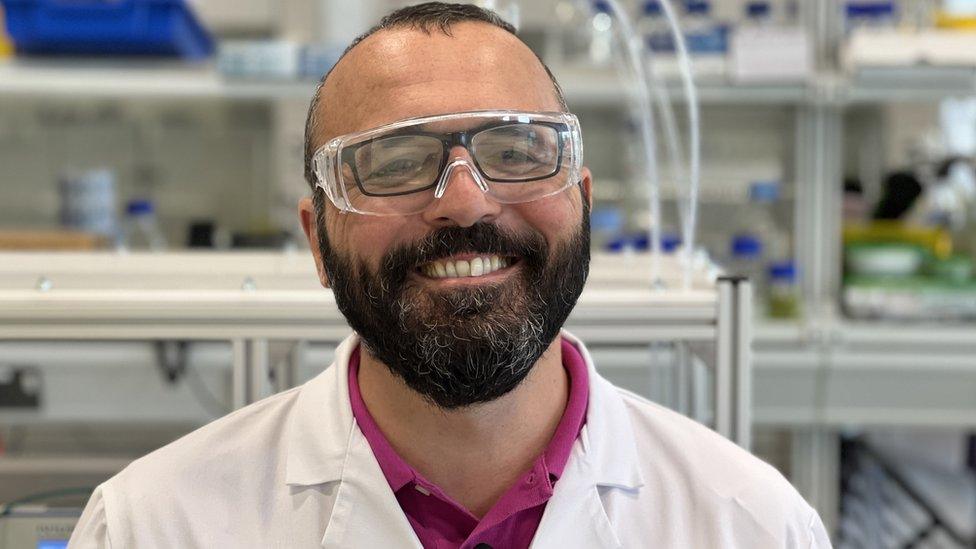
Prof Enrico Andreoli wants to demonstrate the process of making plastic from CO2
"From 2030 to 2040 we need to start making the more radical bets... looking at lots of different technologies.
"If the human race starts drawing down CO2 in large quantities, what useful things can we do with it?
"We could potentially use it to carbonate our drinks. Or, we could use it - as we are with Swansea - to make some of our packaging."
In a similar project, the company is funding research in California to turn CO2 into an artificial sugar.

PARANORMAL: Chilling ghost stories and words appearing on the walls...
STEELTOWN MURDERS: Three murders - unsolved but never forgotten

- Published5 April 2023
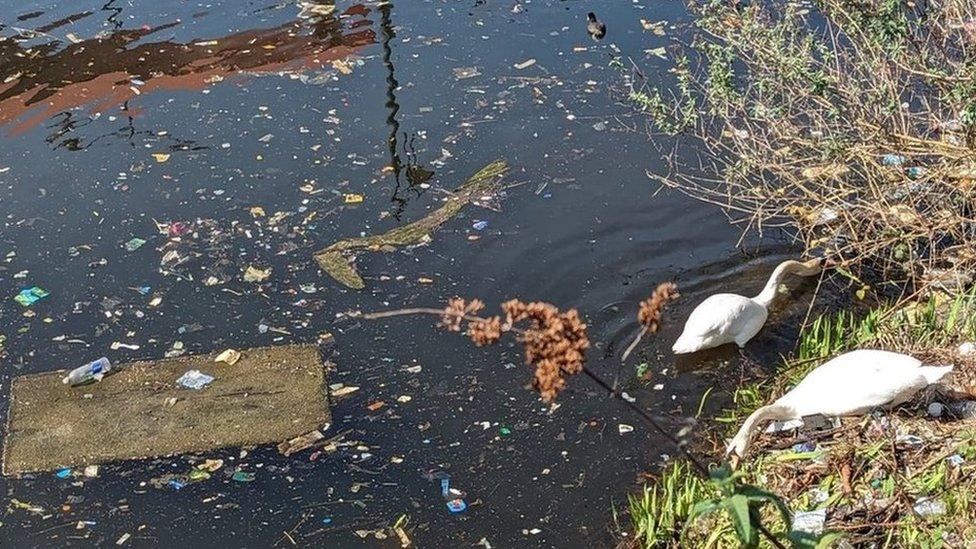
- Published20 January 2023
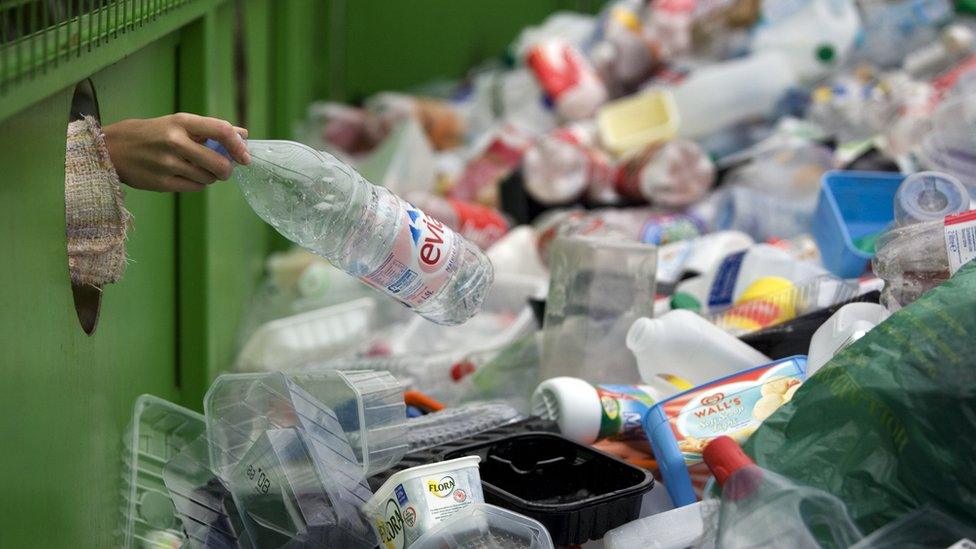
- Published13 July 2023
